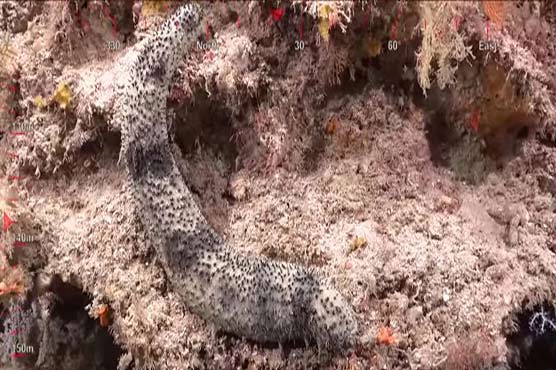Australian scientists find huge new healthy coral reef off northern coast

Australian scientists find huge new healthy coral reef off northern coast
SYDNEY (Reuters) - Australian scientists found a detached coral reef on the Great Barrier Reef that exceeds the height of the Empire State Building and the Eiffel Tower, the Schmidt Ocean Institute said this week, the first such discovery in over 100 years.
The “blade like” reef is nearly 500 metres tall and 1.5 kilometres wide, said the institute founded by ex-Google boss Eric Schmidt and his wife Wendy. It lies 40 metres below the ocean surface and about six kilometres from the edge of Great Barrier Reef.
A team of scientists from James Cook University, led by Dr. Robin Beaman, were mapping the northern seafloor of the Great Barrier Reef on board the institute’s research vessel Falkor, when they found the reef on Oct. 20.
“We are surprised and elated by what we have found,” said Beaman.
He said it was the first detached reef of that size to be discovered in over 120 years and that it was thriving with a “blizzard of fish” in a healthy ecosystem.
The discovery comes after a study earlier this month found the Great Barrier Reef had lost more than half its coral in the last three decades.
Using the underwater robot known as SuBastian, the scientists filmed their exploration of the new reef, collecting marine samples on the way, which will be archived and placed in the Queensland Museum and the Museum of Tropical Queensland.
“To not only 3D map the reef in detail, but also visually see this discovery with SuBastian is incredible,” Beaman added.
Although the northern section of the Great Barrier Reef suffered from bleaching in 2016, Beaman said this detached reef didn’t display any evidence of damage.
Bleaching occurs when the water is too warm, forcing coral to expel living algae and causing it to calcify and turn white.
The Great Barrier Reef runs 2,300 km (1,429 miles) down Australia’s northeast coast spanning an area half the size of Texas. It was world heritage listed in 1981 by UNESCO as the most extensive and spectacular coral reef ecosystem on the planet.

